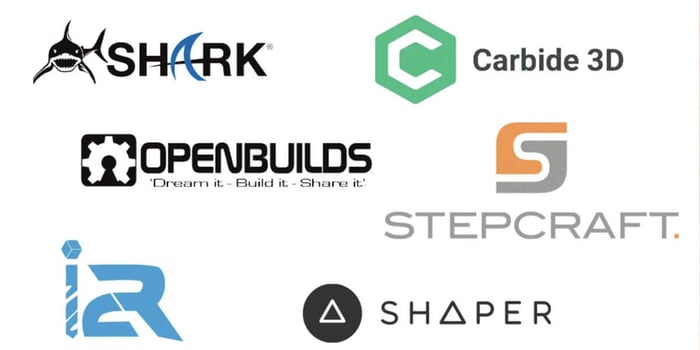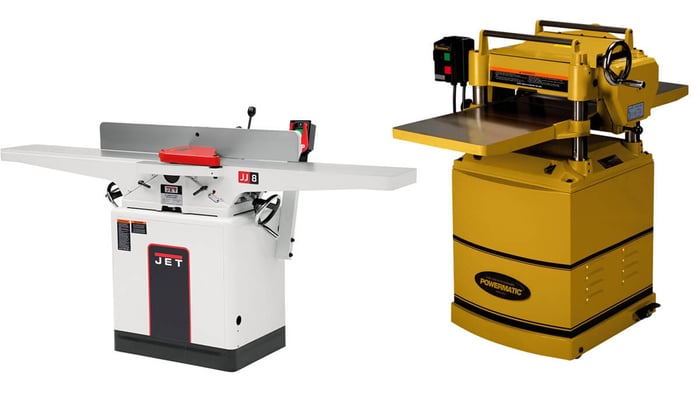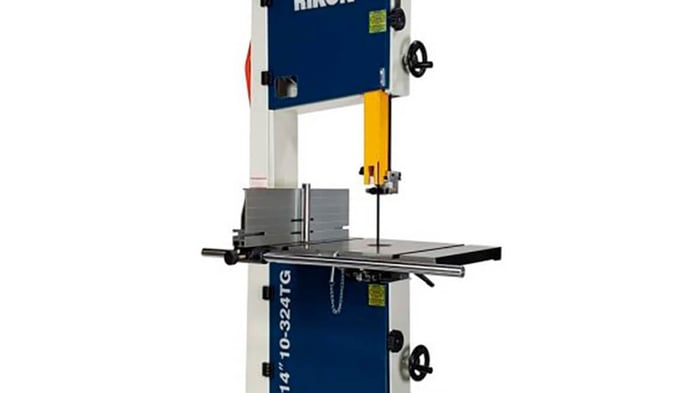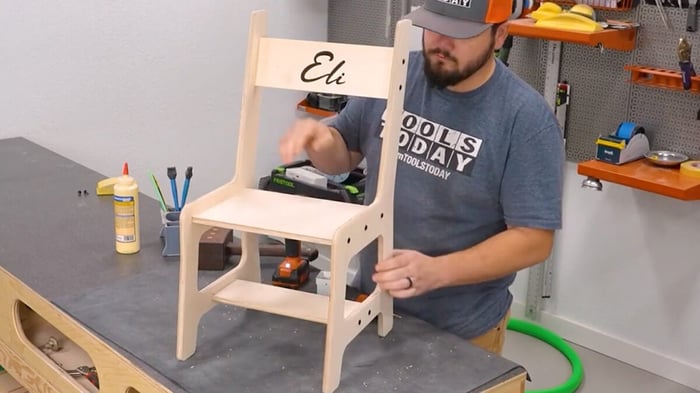
Choosing The Right CNC Router
CNC routers are essential tools for you, whether you run a business or enjoy tinkering as a hobby. They're great for cutting materials with precision and efficiency.
Let's dive into the different types of CNC routing machines out there, comparing what each one offers in terms of features and capabilities. We'll also talk about important factors for you to think about when picking a CNC router, like your budget, the type of projects you'll be working on, the size you need, and software compatibility.
You should keep an eye out for key features when looking for a CNC routing machine, such as accuracy, speed, and material compatibility. We'll also cover maintenance tips and support options to keep your CNC routing machine running smoothly.
If you're on the hunt for a CNC routing machine, this article is packed with helpful insights to guide you towards making the best choice.
What is a CNC Router?
When you're working with a CNC routing machine, you're using a computer-controlled tool that's all about cutting and engraving different materials, mainly in woodworking and manufacturing. This machine is like a precision ninja, thanks to its computer numerical control technology.
With this tech in your corner, you can create intricate designs over and over again – perfect for tasks that demand top-notch precision. These CNC routers are pros at following complex patterns and shapes, ensuring every piece is a carbon copy of the next. In woodworking, these machines are the secret sauce for making furniture, cabinetry, and detailed carvings with absolute precision. Manufacturers swear by CNC routers for churning out components with fine details and flawless finishes, making production smoother and minimizing any human hiccups.

Types of CNC Routing Machines
Regarding CNC routing machines, you have a variety of options to choose from, each designed for specific materials and tasks. Some machines are perfect for metalworking, while others really shine when it comes to working with plastics and wood.
Comparing Different Types
When you're comparing different types of CNC routers, you need to think about their specific routing applications and precision cutting abilities to figure out which machine is the best fit for your needs.
CNC routers come in all shapes and sizes when it comes to performance. Some are built for heavy-duty industrial jobs, while others are better suited for detailed woodworking projects. The top-of-the-line CNC routers have all the bells and whistles like automatic tool changers and multi-axis capabilities, offering top-notch efficiency and precision.
On the flip side, the entry-level routers might be easier on the wallet, but they could lack the speed and accuracy required for those intricate tasks. It's crucial to understand the specific needs of your projects and the level of precision you're aiming for when choosing the perfect CNC router that matches your production goals.
Factors to Consider When Choosing a CNC Routing Machine
When choosing the perfect CNC routing machine for you, make sure to take into account factors like:
- Machine size
- Efficiency
- Speed
- Capabilities
- A user-friendly interface
- Customization options
that align with your woodworking or manufacturing needs.
Budget and Project Needs
When you're thinking about getting a CNC routing machine, make sure you match your budget with your project needs and investment plans. This way, you can get a machine that meets your production requirements without breaking the bank.
It's all about finding that sweet spot between costs and what you need for production. Take a good look at your project requirements and how you see your business growing in the future. This way, you can choose a machine that not only fits your budget but also boosts your operational efficiency. To make the right choice, it's crucial to carefully weigh the short-term costs and long-term benefits. This way, you won't end up with a machine that can't keep up with your manufacturing needs or does more than you really need.
Size and Capabilities
Regarding choosing a CNC routing machine, you need to consider the size and what it can do. This will determine if it's the right fit for your needs, whether you're running a big industrial operation or a small business with different production demands.
If you're in the big leagues of industrial production, you'll want a CNC machine with all the bells and whistles – think high-speed cutting, a spacious work area, and the ability to move in multiple axes. These features are key for keeping up with mass production demands.
But for small businesses, a more compact machine might be the way to go. Look for something that can handle various materials and intricate designs while still being cost-effective. Finding a machine that matches your specific needs and production scale is crucial for making sure you boost productivity and get the results you're after.
Software Compatibility
When choosing a CNC router, you need to make sure it's compatible with your software. This compatibility is key because it affects your design capabilities, production efficiency, and how well it can keep up with the latest industry tech.
A CNC routing machine that plays nice with the right software tools can really level up your ability to create detailed designs quickly and accurately. This compatibility ensures smooth communication between your design software and the machine, which means smoother and more efficient production processes.
By picking a machine that meshes well with your existing software systems, you can streamline your workflow, cut down on errors, and fully harness the newest tech in CNC routing. Considering software compatibility as a major factor is crucial if you want to get the most out of CNC routing machines in today's cutthroat manufacturing scene.

Key Features to Look for in a CNC Routing Machine
When choosing a CNC routing machine, make sure you focus on accuracy, precision, speed, efficiency, material compatibility, and high performance. These are the key features that will guarantee you get top-notch results in all your woodworking and manufacturing projects.
Accuracy and Precision
Your CNC router's accuracy and precision depend on a few key factors. Things like the quality of the spindle, the type of tooling you use, and the spindle speed all play a role in how well your machine can deliver those detailed cuts.
Let's talk spindles. A high-quality spindle is crucial for keeping your cutting process stable and consistent. When you have a top-notch spindle, you'll see fewer vibrations and runout, which means cleaner cuts and sharper details.
Next up: tooling. The type of bits and cutters you choose can make a big difference in your final product. Picking the right tooling for your material and design needs can really level up the precision of your cuts. High quality router bits are not cheap, but you can save money by buying a router bit set.
And don't forget about spindle speed. Adjusting the speed based on the material and cutting parameters can fine-tune your cutting process, leading to even more detailed and accurate results.
Speed and Efficiency
When you're working with a CNC routing machine, speed and efficiency are key players in how productive you can be. Your machine's productivity is influenced by factors like feed rate, axis movement, and optimizing your workflow to make your manufacturing processes smoother.
CNC routing machines are all about precision and speed, making sure you get your tasks done quickly without sacrificing quality. The feed rate is what controls how fast your material moves past the cutting tool, directly impacting how efficient your production is. And the axes moving smoothly and precisely in different directions allow you to nail those intricate designs perfectly.
To really up your game with CNC routing, focus on streamlining your workflow. By organizing your tasks strategically to cut down on downtime and boost your output, you'll end up with a much more efficient manufacturing process.
Material Compatibility
When selecting a CNC routing machine, you should pay close attention to material compatibility. Different machines are designed to work with specific materials like wood, plastics, or metals to ensure you get the best performance and quality for your finished products. The material compatibility of CNC routing machines is crucial for the efficiency and precision of the machining process.
For example, machines designed for wood come with features like spindle speed control and dust collection systems that are perfect for handling wood's unique properties. On the flip side, machines optimized for plastics might have specialized cooling mechanisms to prevent material deformation during machining. By choosing a machine that's tailored to the material you're working with, you'll consistently achieve high-quality results.
Maintenance and Support for CNC Routing Machines
You need to make sure you're taking good care of your CNC routing machines to get the best performance out of them, save some cash, and make sure they last a long time. Always have reliable support services and warranties on hand in case you need any maintenance done.
Proper Maintenance Techniques
You need to make sure you're on top of those maintenance tasks for your CNC routing machine. Regular dust extraction, changing tools on time, and calibrating components like vacuum tables and bed size are key to keeping your machine running smoothly and lasting longer.
If you don't clear out the dust regularly, it can clog up your machine's parts, causing problems and even damage. Changing your tools when needed is crucial to keep your cuts precise and avoid unnecessary wear. And don't forget to calibrate those components like vacuum tables and bed size to make sure your machine stays accurate and delivers consistent results.
To keep your CNC routing machine in top shape, you should set up a maintenance schedule, do regular checks, and keep detailed records of any maintenance you do and any issues you come across. It's all about staying proactive to avoid any problems down the road.
Available Support Options
Having access to comprehensive support options is key for you to effectively operate and maintain your CNC routing machine, ensuring it performs at its best and lasts a long time.
Training programs give you insights into what your CNC routing machine can really do, helping you unlock its full potential. Services are there to quickly help you troubleshoot and repair any issues, so you can minimize downtime and stay productive. Upgrades keep your machine current with the latest features and improvements. And user manuals are your go-to guides, offering step-by-step instructions and troubleshooting tips to tackle any problems that pop up while you're working.

Frequently Asked Questions
What factors should I consider when choosing the right CNC routing machine?
When choosing the right CNC routing machine, you should consider the size and type of materials you will be working with, the level of precision and speed required, and your budget.
What types of materials can a CNC routing machine work with?
CNC routing machines can work with a variety of materials including wood, plastic, foam, and composites. Some machines may also be capable of working with metal.
What is the difference between a 3-axis and a 5-axis CNC routing machine?
A 3-axis CNC routing machine can move the cutting tool along the X, Y, and Z axes, while a 5-axis machine can also rotate the tool along the A and B axes, allowing for more complex cuts and shapes.
How do I determine the right size of CNC routing machine for my needs?
The size of the CNC routing machine you need will depend on the size of the materials you will be working with. It is recommended to choose a machine with a cutting area slightly larger than your largest material.
Can I upgrade my CNC routing machine in the future?
Some CNC routing machines may offer upgrade options, such as adding additional axes or increasing the cutting area. However, it is important to make sure the machine you choose has the potential for future upgrades if needed.
What is the maintenance and repair process for a CNC routing machine?
Regular maintenance and cleaning are essential for keeping your CNC routing machine in good working condition. In case of any repairs or technical issues, it is recommended to consult with a professional technician for proper diagnosis and repair.





